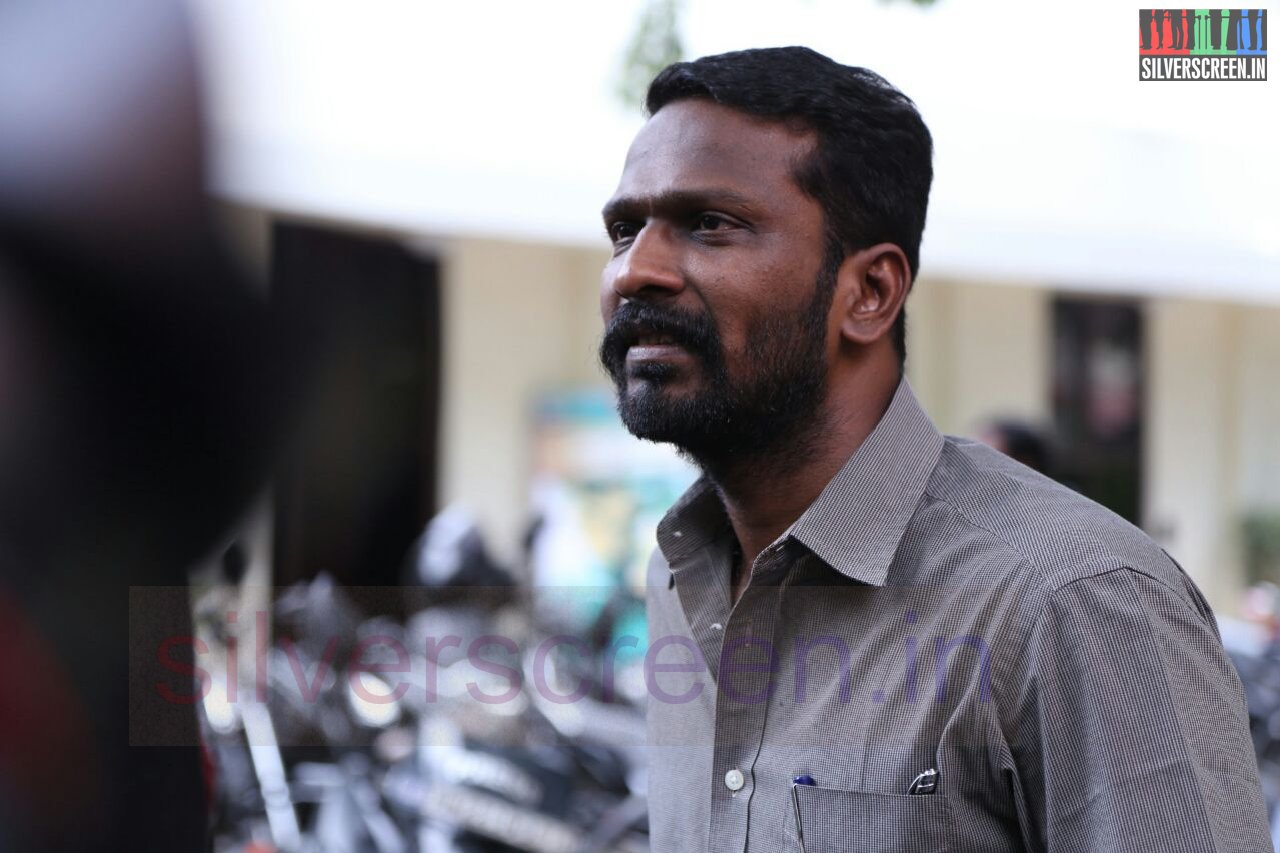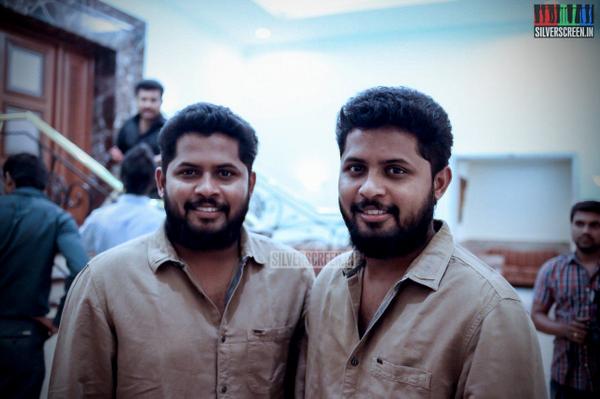The strains of Minnaaminunge sung in a sorrowful chorus ends nearly every memorial event hosted in the last few weeks, in honour of the late Kalabhavan Mani. The song, which features the actor’s voice, makes for a poignant musical tribute:
‘Firefly, where are you off to?
You seem lonely. You seem scared.’
*****
I
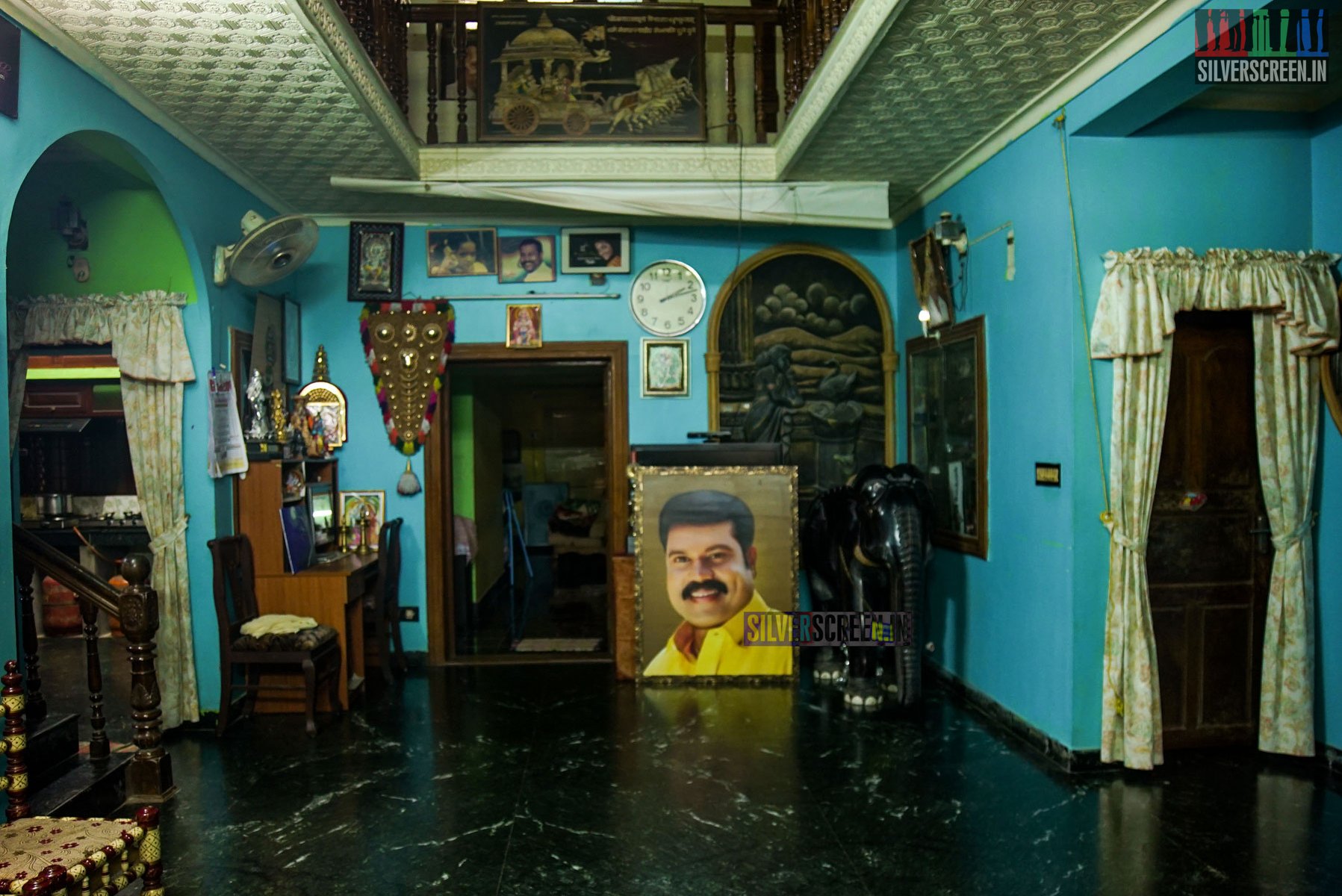
A little town along the banks of the Chalakkudy river in Thrissur, Kerala. A nondescript two-storey building; old-fashioned if you would, but prominently upper-middle class. This is Kalabhavan Mani’s home. The only thing that sets it apart are the powdery blue walls. And, of course, the constant stream of fans and admirers, pouring in from every corner of South India.
But Nimmy, his wife of 17 years, doesn’t mind. “How can I tell them not to visit?” she remarks softly, “It just shows how much they loved him.”
Inside the walls of the Koodaram is a huge digital portrait of Mani. A gift from a recent visitor, it jostles for space alongside a life-size figurine of a porcelain elephant. A nethipattam adorns a doorway. A well-known scene from the Bhagavad Gita, Krishna and Arjuna on the battlefield, is set against the stairway barrister. Pictures of ishta devatas, ornate brass lamps, a few photo memoirs. Just like that, I’ve stepped into the intimacy of a home, the uniquely personal space Mani occupied.
Around a kilometre away from the Koodaram is a signboard, presumably erected by the locals. It points towards Paady, a tiny bamboo cottage slathered in yellow, encompassed by a leafy canopy of nutmeg trees. This little shack was Mani’s favourite hangout. A shady den he would frequent with his friends.
*****
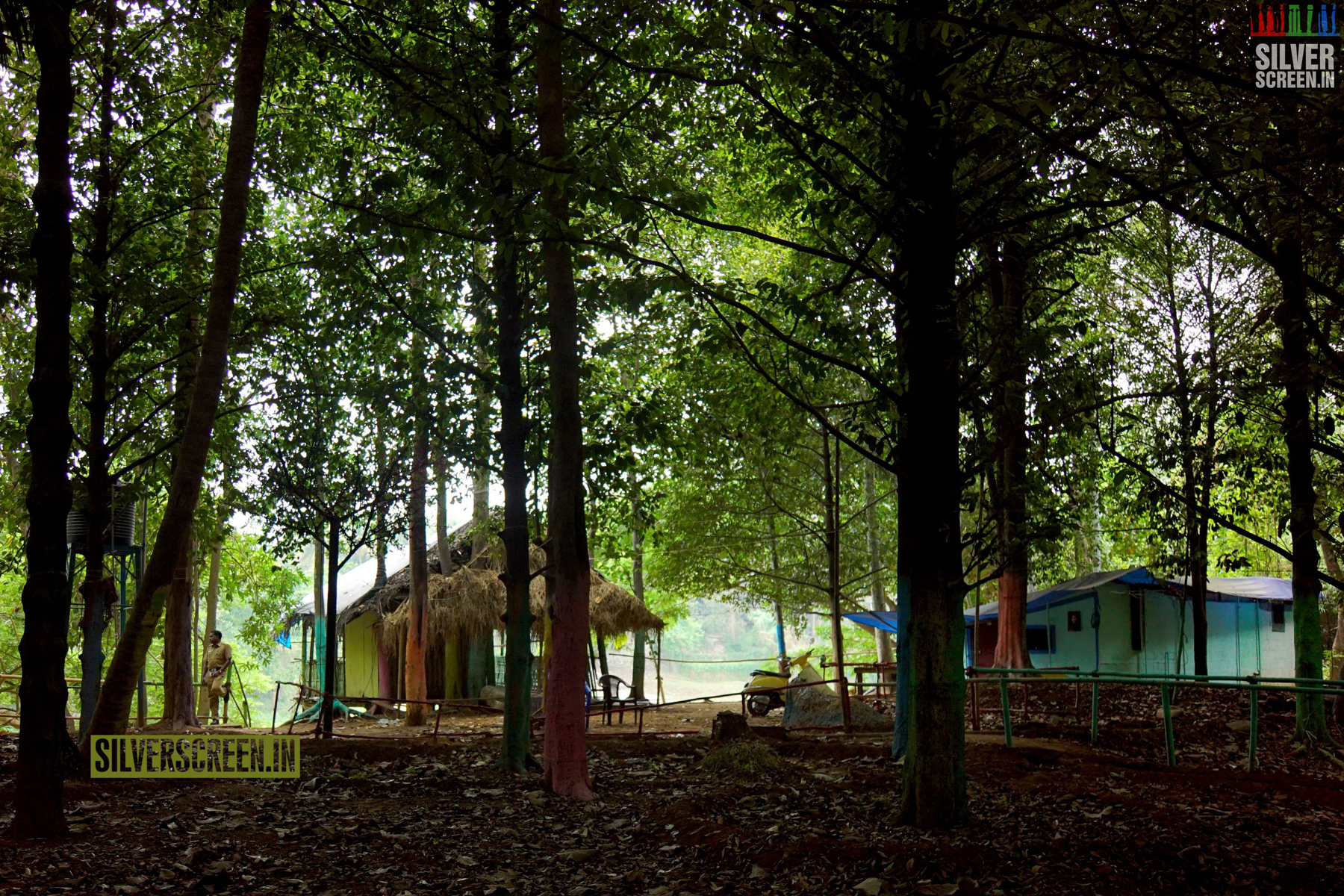
Paady is now a scene of crime. Taped and barricaded. The police, now constantly present. But that doesn’t deter visitors. Youngsters huddle against the cottage for selfies. A mini-van tumbles out a group of men and women, whispering amongst themselves, gazing at the policemen.
Because this was where Mani was last seen alive. Diagnosed with a degenerative liver condition, this was where he had vomited blood. This was the place from where he had been rushed to the famous Amrita Hospital in Kochi.
Mani did not recover. At the age of just 45, this was the last the world saw of the gifted actor, singer and mimicry artiste (and former auto-driver).
Days after the hospital post-mortem had given its verdict (liver disease), and identified the chemicals in his medication (Benzodiazepine), and the drugs Cannabis and Opioid as the leading cause of death, a new report emerged. A regional chemical examiner’s lab in Kakkanad, which tested Mani’s internal organs, established that a chemical Chlorpyrifos, found in his body, is only present in certain pesticides. Worse, these are pesticides banned across several countries.
Mani’s younger brother, RLV Ramakrishnan, ruefully notes that this information was first released to the media.
The family and the police demanded a retest. The Director General of Police, TP Senkumar, personally wrote to the State government, demanding action against the Joint Chemical Examiner, Muraleedharan. Even as a confirmatory report is awaited from the Central Forensic Laboratory, Hyderabad, three of Mani’s former drinking buddies have been taken into custody for interrogation.
*****
15-year-old Sreelakshmi, Mani’s daughter, has just written her CBSE examinations. When I arrive at the Koodaram, she’s in class, preparing for medical entrance tests. Only a few days ago, she, along with her mother and uncle, had met former chief minister VS Achuthanandan, demanding better investigation into her father’s death. Meanwhile, across interviews, the soft-spoken Nimmy had said, “We weren’t aware of the severity of his disease.” However, Mani’s friends and associates maintained that he was, in fact, severely ill. This was corroborated by actor Mohanlal, who wrote in the Manorama, that he had once advised Mani to undergo a liver transplant.
It’s the latest in a series of contradictory declarations, arriving from all quarters of Mani’s brethren.
*****
II
Mani wanted to be a singer. A professional one, at that. Every morning, he would immerse himself neck-deep in the flowing Chalakkudy river. And sing out aloud. When John Brittas, the host of Kairali Tv’s popular talk show JB Junction, requested him to elaborate further in a 2013 interview, Mani laughed his distinctly guttural laugh. “The women bathing and laundering clothes at the nearby ghat would laugh at me. They would call me ‘karutha Yesudas’.”
Only a few years later, his voice was on radio and TV. It had become the rage.
“I was a fan of his songs first,” Ajil, an auto-driver based in Attingal, and the founder-president of the Kalabhavan Mani Sevana Samithi tells me when I call him, “Kerala has never loved any other actor the same way. It was the elderly folk who loved him the most. He treated them as he would his own parents.” In Attingal, a little town in the district of Trivandrum, an old age home is being built as a tribute to Mani. A kedaa vilakku (lamp that burns forever) has also been lit in his memory.
Ajil, who idolizes Mani, has a collection of all his audio cassettes.
*****

Mani’s first album, Thoosume Koontharo, was released in the late 90s. It featured songs composed in Kerala’s unique folk lilt. Over the years, more than 50 lakh copies of his albums, released by Maruthi Audios and Sargam Audios, have been sold in Kerala alone. The songs were an instant hit among the working class comprising of autorickshaw drivers and daily-wage earners. Mani soon began releasing the cassettes himself.
Sallapam, starring Dileep and Manju Warrier, was his first major acting role. The film tapped his potential as a singer and mimicry artiste. Later, most of his films began with his music.
Actor Kalabhavan Prajod, one of Mani’s earliest friends in the industry, says he was a gifted singer who brought back Kerala’s forgotten folk song culture. Prajod, who performed extensively with Mani in the Gulf, says Mani brought him to Kalabhavan. “He was a master-performer of one man shows,” Prajod recalls, “He would sing, dance and mimic for more than two hours straight and had fans from all classes. He was also disdainful of NRIs [as being] those who have no love for their roots, and would make fun of their pompous ways. But people would take to it well since it was Mani. He was charming.”
*****
In stark contrast, Jayachandran Kadapanad, a renowned folk singer and environment conservationist in Kerala, disagrees. “The lyrics reek of misogyny, and although they sounded like folk songs, they were nothing like the original,” he says. “Mani bought the popular tunes and added lyrics written by Arumughan, his collaborator. Most songs compared women to fruits and other things, ridiculed them, carried sexual innuendos, and glorified drunkards and stalkers. Kerala’s generic folk songs, which were written as odes to nature, farmers and gods, are very different from Mani’s version of folk. Aadu Paambe was a famous song by CJ Kuttappan, who began a movement in support of folk musicians in the State. It was bought by Mani.”
The songs were indeed forbidden in some sections of the society and, says Jayachandran, “the upper class in Kerala wasn’t fond of them”. Jayachandran says that time and again, he was at loggerheads with Mani over this, “I would argue that he was ruining traditional folk music by adding these elements to it. He wouldn’t like that.” But there’s no denying that he was incredibly energetic on stage, adds Jayachandran, “Mani loved performing and that’s one of the reasons why his songs became popular. In fact, some people preferred his songs over the original folk numbers.”
*****
Director Vinayan, who was once a regular in Mani’s movies, and who is currently making a biopic on the actor’s life, argues that Mani’s songs used simple language that touched the masses. “Weren’t a lot of songs written by Vayalar Rama Varma misogynistic in nature?” he questions, “It’s just hypocrisy, that’s what it is.”
Vinayan and Ramakrishnan would love it if the Indian government recognised Mani’s contribution and work in folk music. “This man would go to old folk artistes, learn songs, words and pronunciations from them, and sing their songs in public, making them famous,” Vinayan explains, “Who else has done that? Doesn’t he deserve to be honoured?”
*****
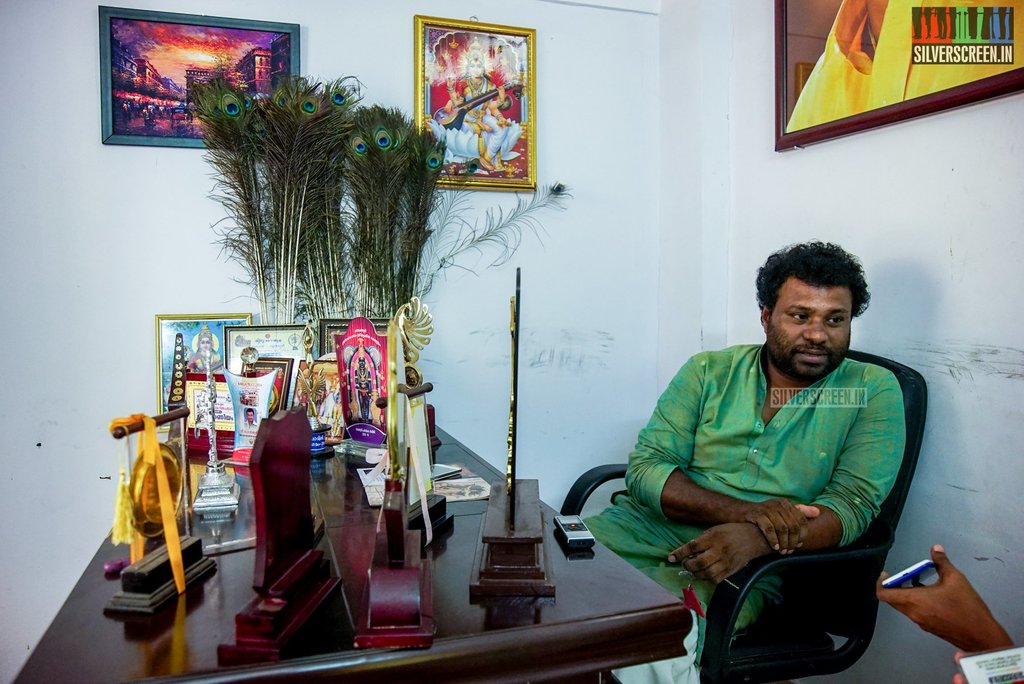
RLV Ramakrishnan, a trained classical dancer, runs a dance and music school called Kalagraha in Chalakkudy. A huge portrait of Mani adorns the building where he teaches; a sculpted impression of their parents greets us as we enter.
“We belong to two different fields of art. I am a classical dancer, and he was into folk music. He was the one who motivated me to learn dance. He wanted us to do everything that he couldn’t,” Ramakrishnan says. He has been running between memorial events, and sharing his memories of Mani. At nearly every event, he is asked to sing a line or two of his brother’s favourite song, Umbayi Kuchaandu, a folk song about hunger and poverty. “They say my voice reminds them of my brother. It is an honour. We are planning to launch a band with our relatives, as a family venture. It will be our tribute to him.”
*****
III
Mani’s birth was, by his own admission, a miracle. He was born in Chalakkudy, on the first day of January in 1971. The sixth child to a father who was a daily-wage earner, he was conceived after his mother had undergone a tubectomy. His father, Raman, worked in the plot of a local landlord, for Rs.13 a day. “We went to bed hungry on many nights,” Mani told Brittas, “but later, I was able to buy the land my father worked in.” An act he describes described as “sweet revenge”.
Before he was discovered as an artist, Mani worked as a head-loader, auto-driver, and daily-wage labourer. “He was a true inspiration to people like us,” says Ajil, “With him, we never felt like we were with a celebrity. His life proves that even poor auto-drivers like us can become stars.”
Vinayan remembers how every conversation with Mani would be peppered with trivia about Chalakkudy, his father, and his past. In one of his films, Vasanthiyum Lakshmium Pinne Njanum, Mani portrayed a blind singer called Ramu. In one scene, he tells a washerwoman that he never had any money to buy clothes for himself, and that he wore old clothes donated by others. “Soon after telling her this, Mani began crying. It wasn’t part of the script,” Vinayan says, “When we wrapped up shooting, Mani told me that he identified with Ramu as he never had money to buy clothes during his childhood.”
“My father wore a shirt for the first time on the day I got married,” Mani told Brittas on JB Junction, “that I don’t have my parents around to witness my success is my only grief.”
*****
Mani became considerably wealthy not long after his film career began. “Rich enough to eat and drink at 5-star hotels, thrice a day,” says Vinayan, “But even then, he always wanted to go back to Chalakkudy every evening and spend his time with his friends, most of them auto-drivers, fishermen and other daily-wage workers. They would sing with him, praise him; he was their hero. I think that kind of life, in turn, affected his health and ultimately led to his death.”
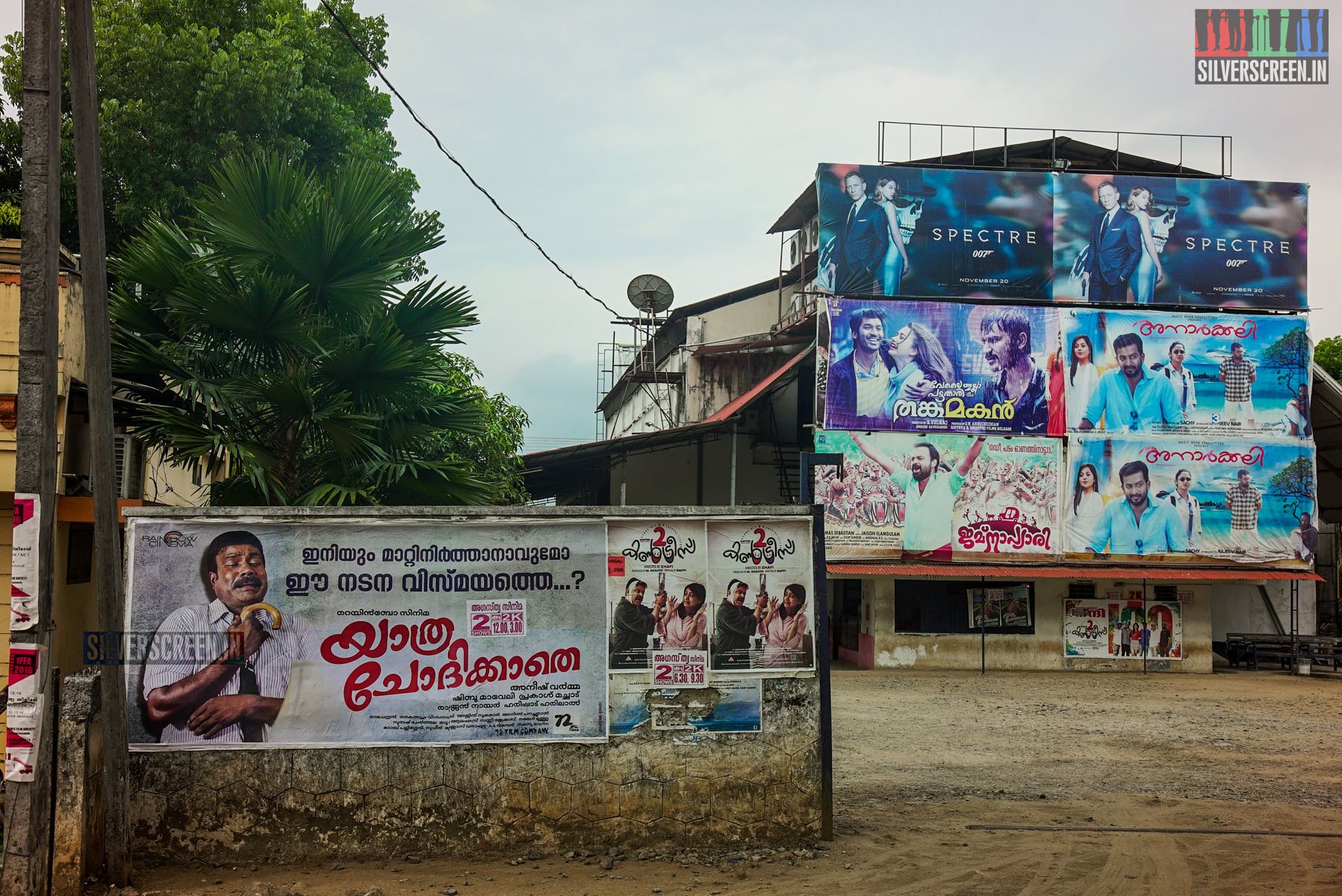
Prajod concurs. “Many a time, when I had accompanied him to Chalakkudy, there would be a lot of people waiting on the road to meet him and seek financial help. He would never turn anyone away,” he says, revealing that Mani had a set of friends who always created an invisible wall between him and others. “Slowly, he began drifting away from us and from everyone who loved him, thanks to these friends. He trusted them a lot.”
“He would also drink to please his friends,” Vinayan adds, “Mani can never say ‘no’. He was also quite sensitive by nature.” In 1991, Mani made headlines when he wept and fainted after losing the State Film Award for Best Actor. “He received a call the previous night from a credible source saying the jury had unanimously selected him as the best actor. But when the official announcement was made, it was Mohanlal who had won the award for Vanaprastham. Mani deserved the award, and was convinced he would win. He was overlooked later as well, when he thought he would win a State Award for Karumaadikkuttan. His talent was never recognised.”
*****
Many believe that there was a fallout between Mani and Vinayan after Karumaadikkuttan’s release. Mani played a dim-witted man in the film. After this film, Mani never featured in another Vinayan film. An actor close to Mani disagrees, “It was a matter of misunderstanding between them. They still had a lot of respect for each other.”
Vinayan, though, has his own tale to tell. “Mani and I were never enemies. He had immense love and respect for me, and I did too. Even when AMMA [Association of Malayalam Movie Artistes] had told its members not to work with me, Mani was ready to act in my films.”
After Mani’s death, AMMA and Mani’s friends in Chalakkudy organised a star-studded memorial event in the town. Mohanlal, Mammootty, Vikram and a number of prominent Malayalam actors attended the event. The glaring absentee was Vinayan, who wasn’t invited. Later, Vinayan told an interviewer that that a ‘superstar’ had told the organisers not to invite him.
*****
Vinayan played a major role in shaping Mani as a well-rounded artiste; he was more of a nondescript comedian till the release of Vasanthiyum Lakshmiyum Pinne Njanum. The director also gave Mani his second major career break, after Lohithadas’s Sallapam. Vinayan happened to watch Mani do an impression of a blind man on the sets of Kalyana Saugandhikam, in which he played a full-fledged role of a comedian. “That was so perfect – more than sheer mimicry. I went up to him and hugged him. I promised him that I would cast him in a serious role, featuring him as a character actor,” recalls Vinayan. After that, whenever they met, Mani would remind him of that promise. Having seen Mani nail tough comic scenes in other movies, Vinayan didn’t have to think twice before handing out the lead role in Vasanthiyum Lakshmiyum Pinne Njanum.
“Apparently, it was my film that paved way for his Kollywood entry. The post-production works of Rakshasa Rajavu was happening at AVM studios, where the makers of Gemini saw some rushes of the film. They were impressed by Mani’s portrayal of an evil minister with comical mannerisms,” reveals Vinayan. “Mani would get very involved in the role, and he was hungry for more serious, tough roles. He was an artiste waiting to be discovered.”
When the Vasanthiyum… team was composing Aalila Kannaa,a 90s chart-buster, Mani would sit with Yousuf Ali Kechery (lyricist) and Mohan Sithara (composer) – and sing the song. “There was a lot of opposition when I announced that I was casting Mani in the lead role of the movie. He was just a 27-year-old comedian then – uneducated, and not very handsome in the conventional way. A couple of mainstream actresses refused to be a part of the film, and a well-known actor said he wouldn’t act in a movie with Mani as the hero. But Mani was willing to do anything to perfect his role, and I didn’t worry about the hurdles.”
*****
IV
Mani, his friends unanimously agree, had a child-like like innocence about him that was immediately apparent. “He had suffered a lot as a child – poverty, humiliation – and it reflected in his personality. He never forgot his past, and even after becoming a star, Mani still had to contend with his colour and his caste,” declares Vinayan, “Mollywood is infamous for being casteist. Mani was often subjected to it, and he never considered himself equal to the other stars in the industry. In his head, he was always a lesser being.”
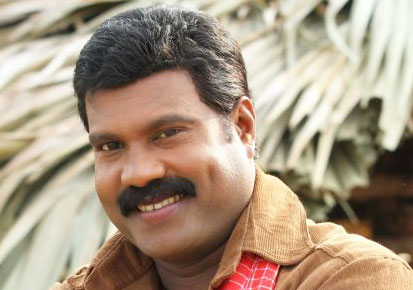 Mani has, in several interviews, lamented that actresses refuse to star alongside him. “It can happen to anyone,” says an actor who doesn’t want to be named. “When you have back-to-back flops, why would people want to be associated with you?”
Mani has, in several interviews, lamented that actresses refuse to star alongside him. “It can happen to anyone,” says an actor who doesn’t want to be named. “When you have back-to-back flops, why would people want to be associated with you?”
Ajil, who watched Mani’s last movie, the ominously titled Yathra Chodikkathe (Without Bidding A Goodbye) at a local theatre, begs to differ. “The film had a good storyline. Why did it end up being small? Barring Mani, everyone else in the film were newcomers or lesser-known faces,” says Ajil. “I once accompanied Mani chettan to a stage show at a temple in Kerala. There, a group of people humiliated him in public, calling him a DHRM [Dalit Human Rights Movement] person.”
But Mani was never bothered by these references, says Ramakrishnan. “He never let himself bogged down by casteist people. He was always respected even inside the industry.”
*****
Mani loved playing the villain on screen. “One of the roles he found most satisfying was the one in Chhotta Mumbai. He was so excited and happy about it,” says Prajod. Mani played an evil cop in the film. The character wasn’t a run-of-the-mill negative role; there were plenty of moments to perform, and Mani was at his subtle best.
In Tamil, he began with Maru Malarchi, and rose to fame with Gemini.
“I was astonished when a Tamilian friend of mine asked me if I was from the home town of a particular Malayalam actor who could do impressions of animals,” says Sam Jose, a film enthusiast from Chalakkudy. “This happened when he wasn’t even a big star. He had just done Gemini, and was still a comedian in Kerala.”
However, post-Gemini, Mani didn’t receive any challenging roles from Tamil, except for the recent Papanasam. His characters in films like Vel were typical Tamil villains who had to growl, roar, and pounce on preys. “Although he loved working in the Tamil industry, he often remarked that the mindless stunts in the films were physically exhausting. His health had started deteriorating, and I think he didn’t prefer playing such villains anymore,” Ajil says.
*****
V
The recent years, leading up to Mani’s death, were not kind to him. The actor began making headlines for reasons other than cinema. In April 2013, the Chalakkudy police registered a case against him under non-bailable sections of the IPC for assaulting two forest officials near Athirappalli. It was the third major complaint filed against the actor in a span of three years. In 2011, Mani had been taken into custody for arm-twisting a traffic constable on duty. The previous year saw him attacking the security guard at the Dream World amusement park in Chalakkudy.

An aide of Mani who doesn’t want to be named says that he was not in touch with two actors, both close friends, for more than a year prior to his demise. One of the actors, a reputed Gulf show organiser in Mollywood, was worried that he couldn’t even get in touch with Mani, who, meanwhile, had begun doing programmes with another group. “They turned him into a habitual drunkard,” the aide adds. “During the last years of his life, Mani was a disappointed man, with movies failing at the box office. He didn’t have anyone guiding him, and he chose bad films.”
Krishnan, a popular make-up man in Malayalam and Telugu, had worked with Mani for many years, before finally quitting some months ago. “Mani chettan told us to look for other jobs; he wasn’t getting offers and was turning cranky and irritable, partly due to his medicines,” he reveals. His liver disease had started taking a toll on his behaviour; he was increasingly short-tempered, moody and difficult to deal with on the sets. Everyone in the industry knew of his illness, Prajod says. Mohanlal, too, had written about it in his blog, a few days after Mani’s death:
“When Mani was admitted to the hospital, I was in constant touch with the hospital and by evening, doctors indicated that his situation was deteriorating. In fact, many did not even know that he was hospitalised, and the news broke only the next morning.”
“Mani was someone who shared his problems and deepest feelings with others. When he disclosed to me that he could be fighting a losing battle against his disease, I came face-to-face with a different Mani that many might have never seen. We talked about medical solutions to his disease and I saw a weak and weary Mani for the first time.”
Ramakrishnan though, insists that Mani wasn’t a ‘patient’. “There was a minor liver issue, but it wasn’t as serious as the media had portrayed it to be. Mani had funded the liver transplant surgery of his manager Joby. He knew the scope of the surgery and he could have easily done one for himself if his health was in a dire state. It was definitely not a serious ailment,” he reiterates.
Recommended
Mani had two managers, Ramakrishnan adds after a thought, exhibiting the first hint of suspicion about his brother’s death in our interview. “Due to the cold war between these two managers, he lost quite a number of promising film offers,” he says, and stares ponderously into the distance, “They wanted him to fool around with them, entertain them with money and liquor. They spoiled his career and his life.”
As Ramakrishnan talks, a visitor peeps in, requesting a photograph. Kalagraha, quite like Mani Koodaram, is milling with fans. Ramakrishnan agrees, and poses grimly. “Mani chettan would always say that he would be celebrated after his death,” he remarks, “It is happening now.”
*****
Kalabhavan Mani: In Life And Death is a Silverscreen exclusive. It was not paid for or commissioned by anyone associated with the actor or his organisations.
(Featured image credit: Kalabhavan Mani’s Facebook page)


